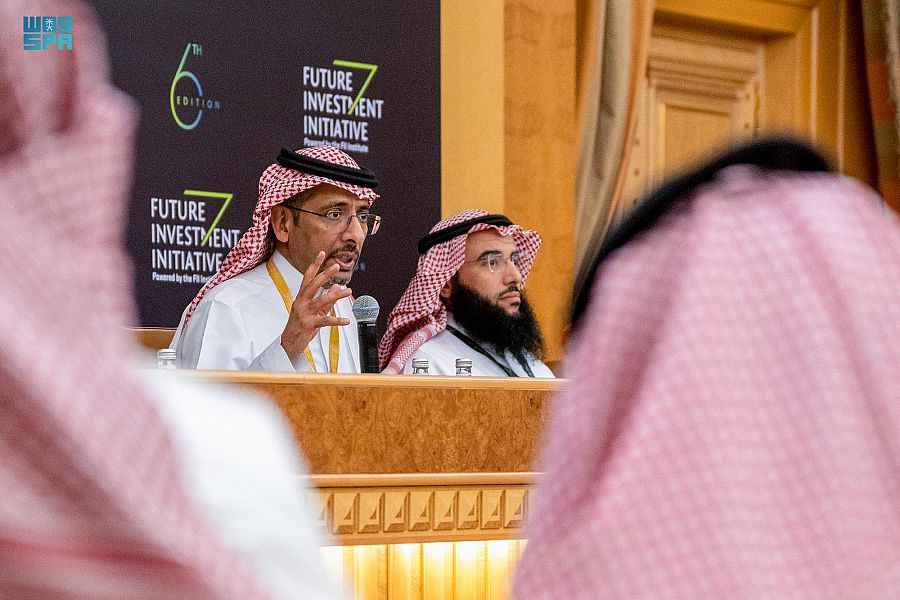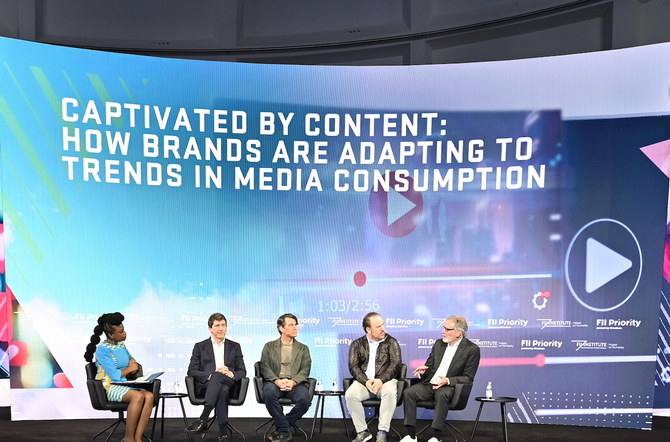
RIYADH: Global business people and thought leaders gathered on day two of the Future Investment Initiative (FII) conference in Riyadh to discuss some of the weightiest international issues, from environmental sustainability to financial pressures.
Their deliberations were reported by virtually all the world’s big news organizations, including those that last week pulled out of sponsorship and partnership deals with the FII, which is run by the Public Investment Fund, the Saudi Arabian sovereign wealth fund.
HSBC, the global bank whose Chief Executive John Flint decided not to attend the event, was represented by Samir Assaf, chief executive of global banking and markets, who told a plenary meeting that global economic power was slipping eastward at the expense of the West.
Assaf said that the bank’s long-term view of the global economy is that it will be driven by higher growth prospects in Asia and the Middle East. “More people in Asia are rising to middle class status, and total wealth in Asia will be higher than in North America by 2021,” he told a panel, adding that short-term economic prospects were clouded by the prospect of higher US interest rates and worries about debt in some emerging market countries.
Other big global corporations at FII discussed how chief executives could help support the UN’s goals on sustainable development.
Alex Dimitrief, president and CEO of GE Global, part of the big US engineering corporation General Electric, said that there were customers in some of the 180 countries in which it operates who still wanted to use older energy technologies like coal and steam, but that the trend was toward more sustainable energy sources.
“The customer is ahead of the regulator in many places,” he said.
For the big US food and drinks group PepsiCo, Mehmood Khan, chief scientific officer, said that water supply and agricultural techniques were two big challenges in the path toward sustainability.
“There are some places in the world where it is easier to get a bottle of Pepsi than it is to get good water,” he said, adding that Pepsi employs some 15,000 people in the Kingdom and helps support 3,000 farmers.
Paul Holthus, CEO of the World Ocean Council, told the audience that usage of desalinated water was an issue for the marine environment, especially in the Middle East, where it doubles every 20 years.
Most of the big US and European news organizations had reporters and broadcasting facilities at the Ritz-Carlton hotel and the adjoining conference center for the event.
Some had pulled senior editors and executives out of the partnership and presenting opportunities at the event.
But it was a different story for the journalists working for such organizations.
“Even if the sponsors pull out, we have to report the news — and there has been no shortage of that in Saudi Arabia,” one foreign journalist said.
One employee of an international broadcaster added: “We have to be here because this is where the story is.”










